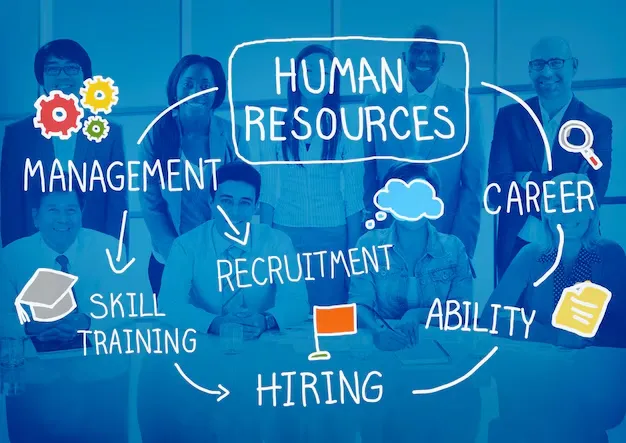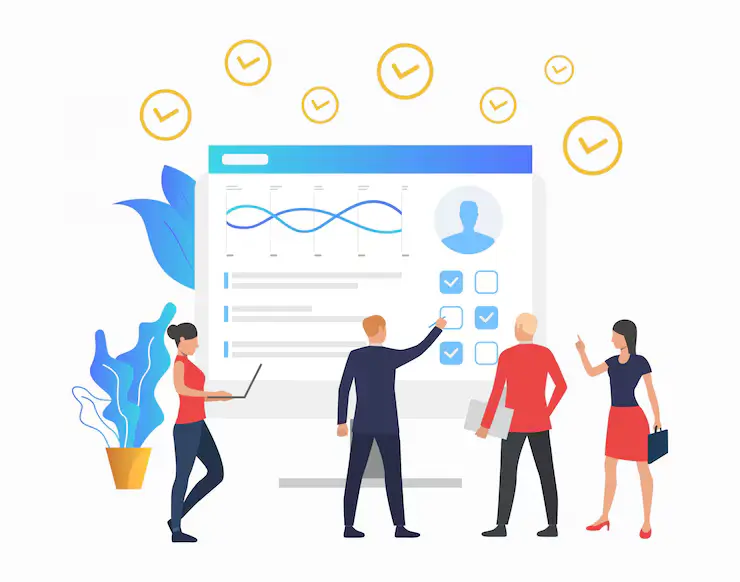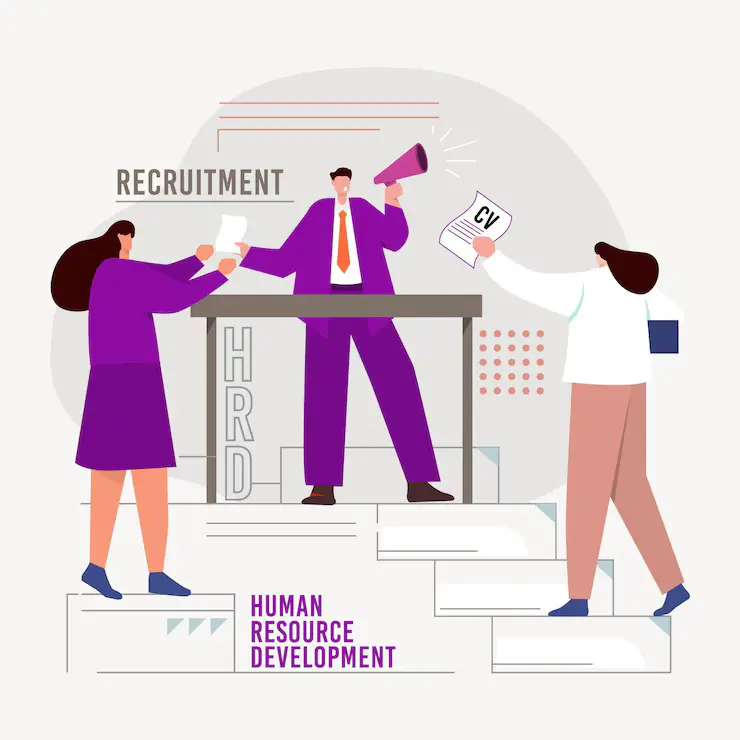10 Human Resources Skills to Learn in 2024
15 October 2024, 5:16 pm IST
Human Resource Management involves administrative functions like hiring people for suitable positions, managing the payroll, and supervising the welfare of employees. According to the Bureau of Labour Statistics, HR Managers’ employment is projected to grow by 8% between 2021-2031.
This article will discuss the most important human resource skills to learn as an HR Manager.
Start your learning journey with advice from our counselor
Request a call →
What is the MBA HR Full Form?
MBA HR Full Form is (Master of Business Administration in Human Resources) and An MBA in HR (Master of Business Administration in Human Resources) is a postgraduate degree application targeted at growing expertise in handling an agency’s workforce.
This specialization covers various factors of human useful resource management, consisting of recruitment, worker family members, overall performance control, training and improvement, repayment and advantages, and organizational conduct.
Students pursuing an MBA in HR research techniques for efficaciously coping with humans, fostering a fine administrative center tradition, and aligning human aid practices with enterprise dreams. The application commonly includes courses on hard work laws, talent acquisition, leadership, and war resolution, amongst others.
Graduates with an MBA in HR are prepared for roles inclusive of HR Manager, Talent Acquisition Specialist, Employee Relations Manager, Compensation and Benefits Manager, and HR Business Partner in various industries.
Top HR skills to learn in 2024
Let’s look at the top ten human resource skills trending in 2024:
1. Human Resources Information Software (HRIS)
HRIS is an IT tool that manages HR work in a company. It collects and stores data on an organization’s employees to manage hiring, performance management, and more.
New technologies like ChatGPT, VR/AR, and IoT are transforming HR practices worldwide. Programs such as Vehicles for Change use augmented reality for mechanic training, Deloitte offers virtual tours for new hires, and virtual job fairs are on the rise. As a result, HR professionals must be proficient in these technologies to improve efficiency, particularly in global or remote teams.
Additionally, MBA HR professionals need to understand Human Resource Information Systems (HRIS), which manage data on hiring, performance, payroll, rewards, and benefits. Training should include HRIS navigation and data interpretation. Large organizations often use providers like SAP (SuccessFactors) or Oracle, while smaller firms may use other providers. Knowledge of HRIS is essential for senior HR roles and is a critical technical skill for HR professionals.

2. HR analytics
This is a data-driven approach to measure specific growth metrics in your organisation. You need to be very good with data and have strong analytical skills.
People analytics is used by HR and business leaders to spot their future rock stars, track benefits packages, keep wages and salaries fair, and forecast staff needs - an invaluable resource if the data it bears up-to-date. In the last 5 years, we have entered an era where data-driven skills are essential, with 92% of HR professionals planning to use people analytics for strategic decision-making.
Some of the key competencies all HR practitioners should have in 2012 are: Understanding of HR metrics such as turnover, absenteeism, engagement, and retention; use of advanced predictive analytics as well as basic data analysis tools like Excel-centric workforce planning. This data-driven way provides better and erudition decisions in human resource management.
Apply Here For Best MBA in MBA With Specialization In HR Analytics

3. HRM expertise
You should familiarise yourself with Human Resource Management or HRM concepts. It will help you understand and solve most of the HR duties in this field.
Having previous work experience or an educational background in Human Resource Management (HRM) or Industrial and Organizational Psychology is highly beneficial for an HR professional. Knowledge in HRM provides a foundational understanding of key areas such as recruitment, selection, absence procedures, and data reporting, which are critical to the role.
Additionally, an educational background in psychology or HR Management helps develop essential soft skills, such as communication and coaching abilities, which are crucial for effective HR management. These skills enhance your ability to interact with employees, resolve conflicts, and provide guidance and support.

4. Recruitment and onboarding
As an HR Manager, you have to shortlist CVs and take interviews to hire candidates for your company. It requires skillsets like understanding candidates and analysing if they fit the role.
A report by PWC found that 58% of HR leaders surveyed identify finding, attracting, and retaining talent as their top challenge. Therefore, identifying qualified candidates, selecting the best ones, and ensuring a good fit between the candidate, company culture, and manager is crucial for HR.
To address this, HR professionals must develop recruiting skills such as relationship-building, negotiation, and collaboration. A key component of recruitment and selection is interviewing candidates, which requires active listening skills. Additionally, it is essential to ensure that the recruitment and selection process is fair and non-discriminatory, regardless of age, gender, ethnicity, or other factors.

5. Maintaining employer-employee relationships
An HR Manager’s job is to take care of employer-employee relationships by identifying the problems of employees, labour disputes, and others.
HR professionals play a vital role in ensuring that employees remain happy, healthy, and also productive. According to McKinsey, workplace stress negatively impacts productivity, increases voluntary turnover, and costs U.S. employers nearly $200 billion annually in healthcare expenses. Furthermore, 95% of HR managers believe that burnout is undermining their workforce, and 77% of employees report experiencing burnout at their current jobs.
However, among those who work at companies that support wellbeing initiatives, 89% are likely to recommend their organization as a good place to work. As the significance of employee well-being becomes more evident, it is increasingly prioritized by organizations.

6. Teamwork
HR professionals always have to work with people in teams. Teamwork and collaboration are the two most essential skills to work on as an HR professional.
As an HR professional, you are expected to collaborate with colleagues within the HR department, as well as with managers, leaders, and employees across the organization.
Actively aligning HR activities internally benefits both the organization and the HR function. Being a team player fosters collaboration, innovation, morale, and satisfaction within the organization, encouraging others to work together effectively.

7. Listening skills
HR Managers guide employees through challenging workplace situations. So you must work on your active listening skills, a valuable soft skill in this industry.
HR professionals skilled in active listening can attentively listen to others without prejudice or judgment of the colleague, creating a safe space for sharing.
Active listening is closely linked with empathy. As leadership development and career coach Diane Gallo explains, “In a work setting, empathy is the ability to see situations from the perspective of all stakeholders. This includes internal employees, shareholders, the communities in which they operate, and even the geopolitical environment.”
Without strong active listening skills, handling sensitive matters related to DEI&B (Diversity, Equity, Inclusion, and Belonging) becomes more challenging, and it becomes harder to effectively coach employees and fellow HR professionals.

Call Us For Any Query:- 1800 102 3434
8. Coaching
HR Managers have to organise various training sessions. So you must have impeccable coaching skills to train your team for growth and development.
Coaching skills are crucial for fostering employee development, enabling them to achieve their full potential and align their skills with the company’s goals.
These abilities also empower HR professionals to effectively manage various scenarios such as training, onboarding, reintegration, conflict resolution, and supporting frontline managers with personnel issues.
Typically honed through hands-on experience or external coaching programs, these skills are integral to essential leadership competencies.

9. Time management
HR professionals juggle several responsibilities daily. Thus, you must have excellent time management skills to complete every task smoothly and efficiently.
Regardless of the value or significance of a project or HR initiative, stakeholders are likely to hold diverse opinions, priorities, and motivations.
Effectively handling conflicting ideas and priorities among stakeholder groups and navigating this complexity is crucial. It enables you to sidestep potential project pitfalls and secure the necessary information and support to ensure your project's success.

10. Adaptability
HR professionals must adapt to changing social, technological, and labour conditions. They must discard old work methods that hinder growth and progress.

What is an Average Starting MBA HR Salary?
The common starting MBA HR Salary (Human Resources) can vary depending on factors along with place, industry, organization length, and the character's revel in and abilities. However, in fashionable:
- In India: The average starting salary for an MBA HR graduate typically ranges from ₹4 to ₹8 lakhs per annum. Top-tier institutions and companies may offer packages that exceed this range.
- In the United States: The average starting income for MBA HR graduates commonly falls between $60,000 to $9,000 consistent with year. Graduates from prestigious business schools or the ones employed by principal companies can earn even higher beginning salaries.
Note:- These figures can also increase with relevant experience, industry demand, and additional qualifications.
Importance Of HR Skills
Competent HR professionals not only excel in their careers but also play a key role in the broader organizational context.
Professionals with robust HR skills experience:
- Enhanced job satisfaction: Proficient HR practitioners adeptly solve complex issues and fulfill job expectations, fostering greater engagement and dedication.
- Increased confidence: Developing HR expertise enables professionals to make informed decisions and effectively interact with colleagues, cultivating trust and respect.
- Elevated earning potential: By sharpening their HR competencies, practitioners enhance their market value, positioning themselves for promotions or higher-paying roles.
- Fulfilling HR careers: Leveraging their strengths, skilled HR professionals take on strategic responsibilities, garner recognition, and drive organizational success.
Organizations benefit from skilled HR professionals by:
- Enhancing employee engagement: Effective communication and motivational skills create a positive workplace culture, boosting satisfaction and retention.
- Improving productivity: Competent HR teams implement efficient policies, training programs, and incentives that enhance workforce performance.
- Strategic workforce planning: HR professionals align business goals with talent management strategies, foreseeing future staffing needs and supporting organizational objectives.
- Change management expertise: Effective communication and planning enable smooth transitions during periods of organizational change, maintaining stability and performance.
- Cost efficiencies: Skillful HR management reduces recruitment costs, turnover, and absenteeism, positively impacting the organization's financial health.
- Fostering team morale: Proficient conflict resolution and inclusive practices strengthen team cohesion and morale.
- Enhancing organizational performance: Organizations with adept HR leadership excel competitively, adapting effectively to evolving business landscapes.
In essence, skilled HR professionals contribute significantly to organizational success by managing a motivated workforce and driving strategic initiatives.
Top Companies For MBA HR Jobs
Here are a number of the pinnacle corporations acknowledged for offering wonderful MBA HR Jobs for MBA graduates specializing in Human Resources (HR):
- Tata Consultancy Services (TCS)
- Renowned for its worker-pleasant regulations and worldwide reach.
- Offers roles in HR operations, talent control, and organizational development.
- Infosys
- Known for a robust cognizance of worker improvement and training.
- Provides possibilities in HR analytics, employee engagement, and recruitment.
- Reliance Industries
- One of India’s biggest conglomerates with various HR roles.
- Offers positions in reimbursement control, HR method, and company HR.
- Wipro
- Offers plenty of HR roles with a focal point on innovation and digital transformation.
- Key regions include skills acquisition, HR technology, and studying and improvement.
- Aditya Birla Group
- Known for robust HR management programs.
- Provides opportunities in strategic HR control, employee family members, and overall performance management.
- Hindustan Unilever Limited (HUL)
- Offers roles in skills control, management improvement, and organizational behavior.
- Recognized for its awareness of leadership education and worker growth.
- ICICI Bank
- Provides HR roles in skills acquisition, HR compliance, and worker engagement.
- Known for a dependent HR profession path with increased opportunities.
- Deloitte
- A top consulting company supplying HR roles in advisory services, expertise methods, and HR transformation.
- Provides exposure to diverse industries and global HR practices.
- IBM
- Known for HR roles in human analytics, the body of workers making plans, and HR generation.
- Focuses on innovation and digital HR answers.
- Amazon
- Offers HR roles in talent acquisition, worker relations, and HR enterprise partnering.
- Known for its dynamic work surroundings and recognition on leadership improvement.
These organizations provide robust career paths, professional development, and opportunities for boom inside the HR domain.
Also Read:- Top Industries Hiring Online MBA Graduates: Where Your Degree Can Take You?
Are you ready to take the next step in your career ?
EnrolL Now →Conclusion
There is no end to learning and upskilling yourself to be up-to-date with the competitive job market. If you’re looking to build a career in HR, the skills discussed in this article will help you in your professional journey. Check out Amity’s Online MBA with a specialisation in HR Analytics to get a headstart on your goal of becoming an HR professional.
Check Out Our Top Online Programs
Tags : Latest


